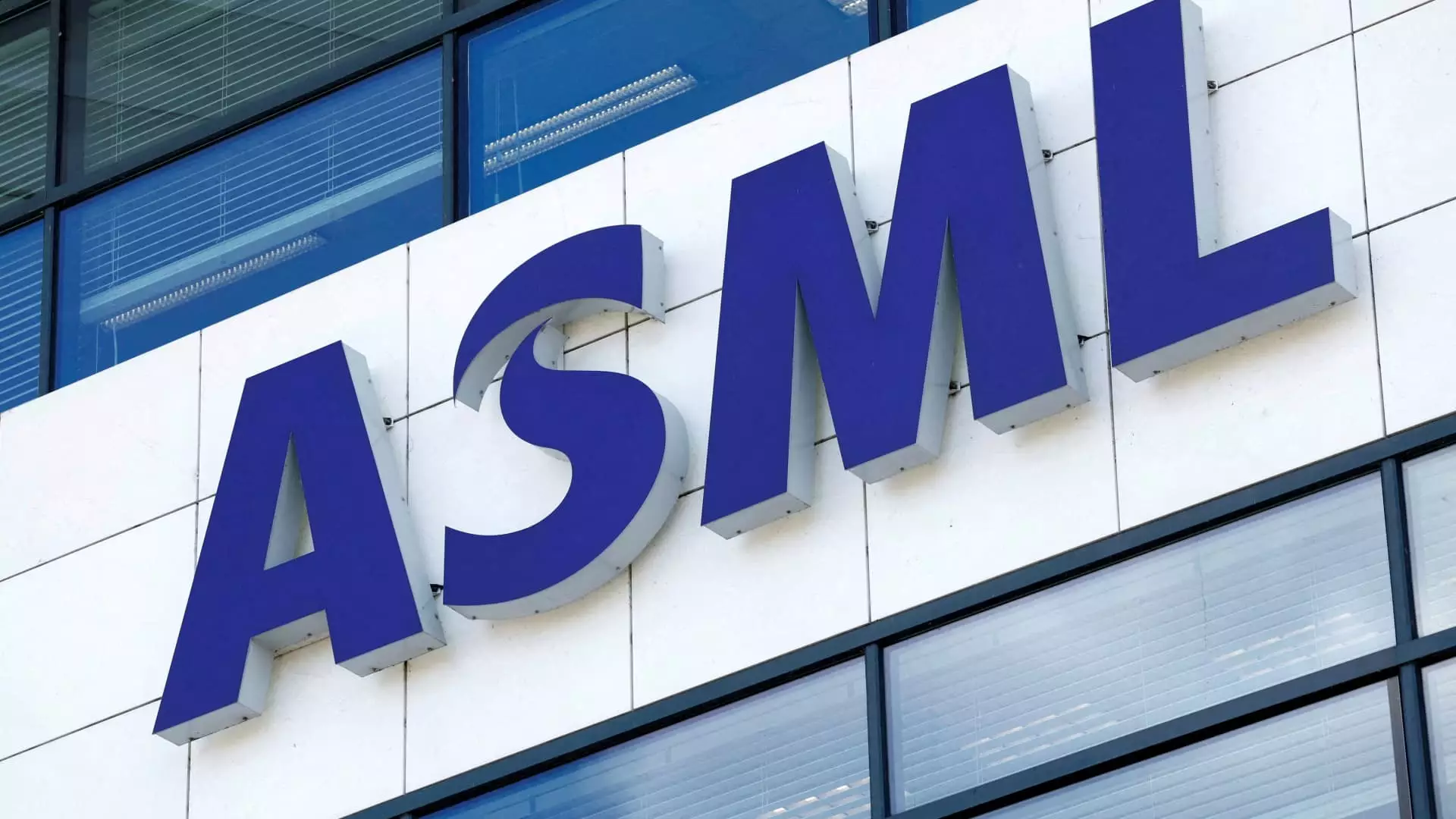ASML, the Netherlands’ chip-equipment maker, plays a crucial role in the country’s economy and its position as a key player in the global semiconductor supply chain. The company’s production of extreme ultraviolet lithography (EUV) machines is essential for manufacturing integrated circuits, making it a valuable asset to the semiconductor industry worldwide. The technology behind EUV machines involves the generation of an ultra-short wavelength of light to print intricate designs on microchips, a process that requires precision and expertise. ASML’s CEO, Peter Wennink, emphasized the need for skilled labor to drive innovation in the industry, highlighting the potential consequences of restricting labor migration on the company’s growth.
Despite ASML’s significance to the Netherlands, the company has been confronted with challenges that have put its future in the country at risk. Plans to limit tax breaks for highly skilled migrants and the number of foreigners attending Dutch universities have raised concerns for ASML, prompting discussions with the Dutch government about its expansion plans. Wennink’s comments about the possibility of relocating operations in response to these challenges reflect the company’s dissatisfaction with the government’s approach to fostering growth. The gap between industry concerns, government policies, and political decisions has created uncertainty for ASML, underscoring the need for a cohesive strategy to support the company’s development within the Netherlands.
In response to ASML’s apprehensions about its future in the Netherlands, the Dutch government initiated “Operation Beethoven” to address the company’s concerns and encourage its continued presence in the country. The government’s efforts to engage with ASML and alleviate its worries demonstrate the importance of maintaining a favorable business environment for key industry players. Steven van Weyenberg, the Dutch finance minister, expressed confidence in ASML’s commitment to the Netherlands despite the challenges it faces, emphasizing the country’s support for the company’s growth and compliance with regulatory requirements. However, concerns about global economic fragmentation and geopolitical tensions pose additional risks to ASML’s operations and the Dutch economy as a whole, highlighting the need for proactive measures to safeguard the company’s future.
ASML’s role in the semiconductor industry extends beyond its operations in the Netherlands, as the company navigates geopolitical tensions and export controls that impact its global footprint. Restrictions on the export of advanced semiconductor tools to China have complicated ASML’s business operations, reflecting broader challenges in international trade and technology regulation. The company’s collaboration with the U.S. and the Dutch government on chip export controls underscores the complex dynamics of the semiconductor market and the importance of regulatory compliance in a rapidly evolving industry. As ASML confronts external pressures and internal challenges, its ability to adapt and innovate will be critical to its long-term success and sustainability in the global market.
ASML’s future in the Netherlands is intertwined with its strategic positioning in the global semiconductor supply chain, regulatory environment, and geopolitical landscape. The company’s significance to the Dutch economy underscores the need for effective collaboration between industry stakeholders, government agencies, and policymakers to support its growth and competitiveness. As ASML navigates challenges and opportunities in the semiconductor market, it will be essential to leverage its technological expertise, innovation capabilities, and strategic partnerships to ensure its sustained success and contribution to the industry’s evolution. By addressing the complexities of the contemporary semiconductor landscape and proactively managing risks, ASML can strengthen its position as a leading provider of chip-equipment solutions and maintain its status as a cornerstone of the Dutch economy.


Leave a Reply